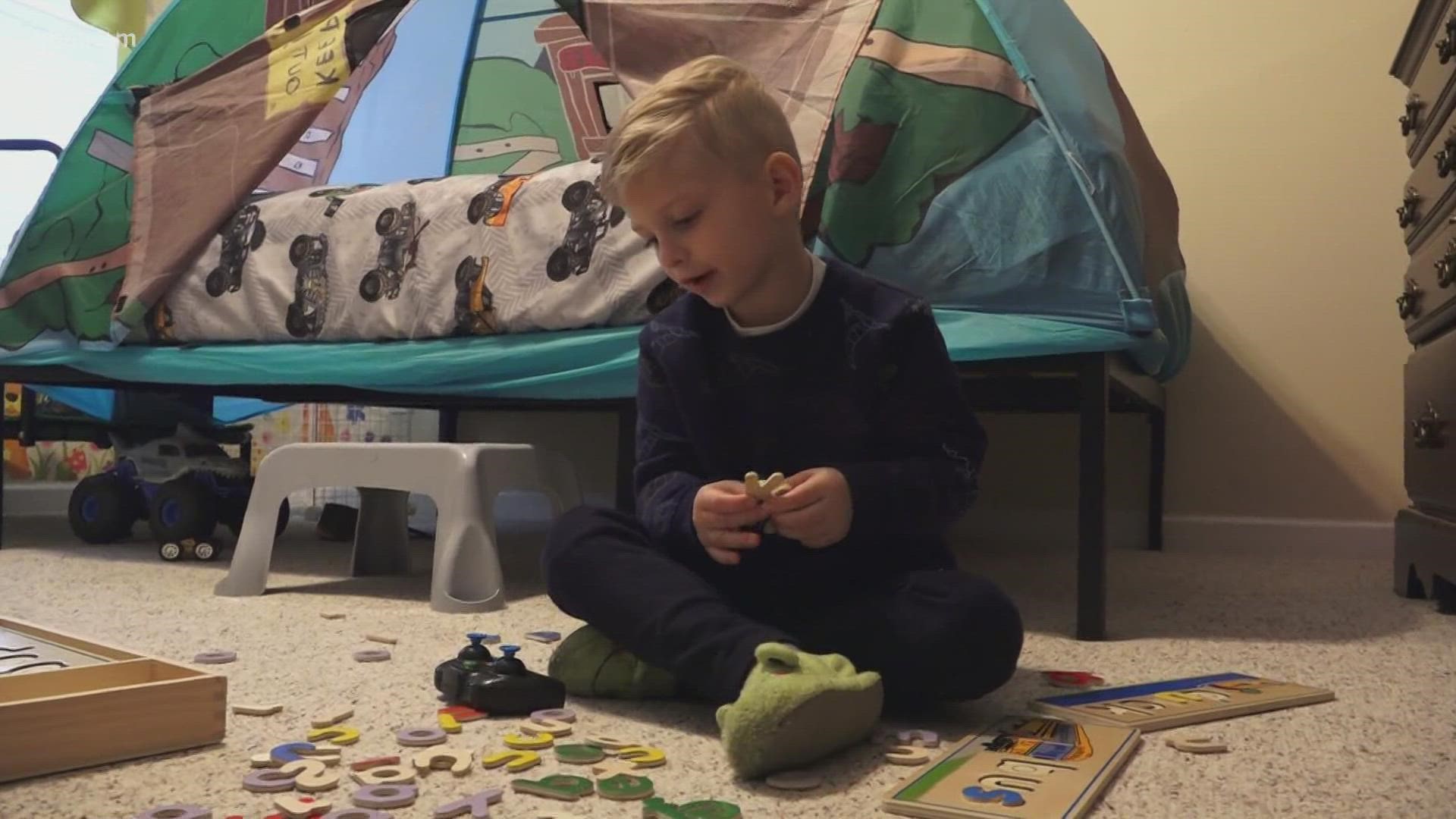LENOIR CITY, Tenn. — On the floor of his bedroom in Loudon County, Kayden Lambert spells out "car" using small wooden toys. His grandmother worries three other letters may define his life: NAS.
Kayden was born with Neonatal Abstinence Syndrome—dependent on the methemphatime and opioids his mother used while she was pregnant.
At nearly 4 years old, Kayden has made incredible progress from the heartbreaking withdrawal of his first days of life. He used to require speech and occupational therapy, but his grandmother said he graduated from those programs.
"He's just done remarkably. He's made great strides," said Kathy Lambert, who legally adopted her grandson in 2018.
Despite the progress, she said that she is worried that the family is not out of the woods yet. Experts like Patty Zetterberg, a nurse practitioner at East Tennessee Children's Hospital, said that the effects of NAS can be lifelong.
She works with kids born with NAS through the hospital's "Grow With Me" clinic.
Zetterberg said the more than 400 children in the program often struggle with sensory and speech issues. As they get older, around Kayden's age, she said they sometimes begin exhibiting behavioral problems.
"The child has a very difficult time knowing how to manage their emotions and it's very hard for families to know how to parent that child through the anger outbursts," she said.
Kathy Lambert is worried that may happen with Kayden, especially when he occasionally gets upset.
"It just keeps escalating instead of leveling down, no matter what you do," Lambert said. "Will there be issues down the road? We don't know that. No one knows that."
Tennessee has not updated its statistics on how many children are born drug-dependent since 2018, but Zetterberg said her program is constantly enrolling new babies. Most need care beyond Kayden's age, she said.
For now, Kayden acts like any other toddler, but the drugs his mother took while pregnant could continue to cause problems — showing the long-lasting impact of the opioid crisis on kids.
"Someone has to be a voice for these children and it doesn’t stop," Kathy Lambert said. "Because these children are going to be the ones who suffer from it."

